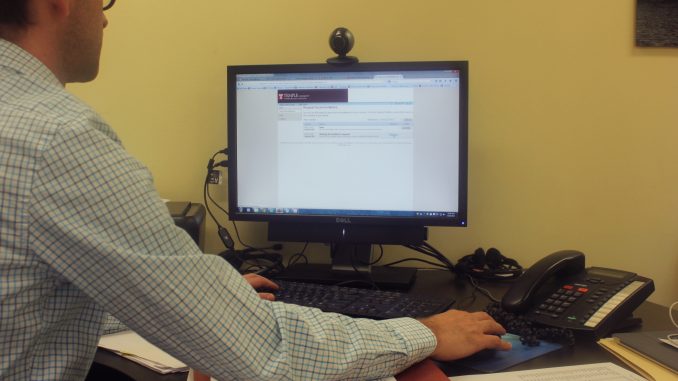
Applying for an academic accommodation for a disability will now be a paperless process after an electronic program, MyDRS, was launched last week after two years of development, administrators said.
Through various tools, MyDRS allows students and professors to complete most of the process of applying and approving an academic accommodation. The program also allows students to digitally register with DRS and scheduling test dates.
Additionally, MyDRS has been integrated with the university’s records-keeping program, Self Service Banner, so professors’ contact information is easily accessible. Future plans call for integrating MyDRS with TUportal.
“It’s a lot more fluid now,” said Aaron Spector, associate director of disability resources and services. “Certain steps in the process can be accomplished online on a student or the professor’s own time. It makes some of these steps a 24-hour service.”
Spector said the program is also more secure than the old largely paper system.
“There’s always the risk of paper just being out there,” Spector said. “What’s nice about MyDRS is that the student’s confidential letter is only accessible with a secure Temple login to both the student and the faculty member.”
Although MyDRS still requires students to interact face-to-face with professors and DRS staff, the previous system required students to serve a larger role as a liaison between their professors and DRS.
In March, David Harris, a former student in the social work department who graduated two weeks ago, filed a complaint with the U.S. Department of Education’s Office for Civil Rights, alleging that the requirement to submit accommodation requests for his bipolar disorder in person allowed for staff to question his application.
“It was a form of structural violence,” Harris recently told The Temple News in a phone interview.
Additionally, Harris said he was called “an irritant” by staff members for filing the grievance.
Harris said he later found out in a letter that his case was reviewed but had been dismissed. Nonetheless, Harris said he feels his grievance hastened the release of MyDRS.
Spector declined to comment on the specific case, citing confidentiality requirements.
However, Spector said MyDRS was long in development and was not hurried beyond its estimated schedule. He said the employee side of the program had been implemented in Fall 2013.
Spector added that the program was developed over two years. Additionally, a 2007 external program review of DRS indicated “a critical need” for a database program in the department.
Regardless of the program’s implementation timeline, Harris said he is satisfied with the outcome.
“I aimed for removing a practice of hand delivering requests,” Harris said, “and I got it … I have no further complaints.”
Marcus McCarthy can be reached at marcus.mccarthy@temple.edu and on twitter @MarcusMcCarthy6


Be the first to comment